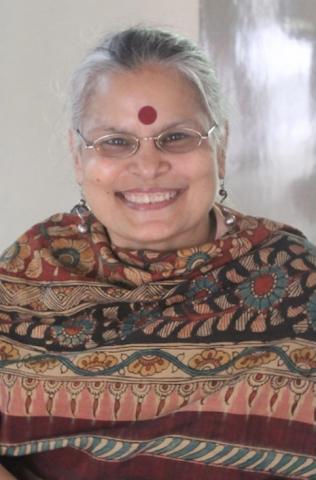Disability in Bollywood (Enrichment Lecture:13)

The Department of English organized a virtual enrichment lecture on 14 December 2020 for its UG and PG students with Dr. Anita Ghai, a Disability Rights activist and Professor in the School of Human Studies at Ambedkar Univ., Delhi, on ‘Disability in Bollywood’. Beginning with an account of her own experiences with disability, she talked at length about how the ‘differently abled’ are perceived by the society as ‘lacking’ something and are thus repeatedly sent external messages that convey the same. From here, she went on to discuss how disability is portrayed in Bollywood films beginning with cult classics such as Mother India and Dosti. She questioned the necessity of depicting a curative or at least a compensating characteristic in films for the disabled are usually seen as departing from what is considered ‘normal’ by the society’s standards. She opined that normality cannot be determined in such a way and that the disabled are only seen the way they are because society’s mechanisms deny them what she called ‘the playing field’.
Despite possessing an epistemology, disability is not looked at as a repository of knowledge and is instead seen as a concessional category. Accessibility in India is a big issue that Prof. Ghai emphasized on, including the daily challenges in the lives of people with disabilities due to the lack of ramps and inaccessible public transportation. She also discussed the gender politics of disability and its impact on the feminist theory especially with respect to ‘mother blaming’ in the cases of disabled children. She also condemned the practice of preferring able-bodied patients as against the disabled while assigning ventilators during the COVID 19 Pandemic.
She also cited examples from India’s mythical history by dwelling on the portrayal of
disability in characters like Dhritarashtra and Shakuni. She also appreciated the efforts put behind films like Sholay and Sparsh that rendered a powerful depiction of disability. She exhorted the students to be perceptive about the portrayal of disability in popular culture and explained how unlike other marginalizations such as those of caste and gender, can happen to anyone at anytime. Finally, she focused on the importance of the motto “Nothing for us without us” thus emphasizing on the need for both inclusivity and interdependence. The session came to a close with an interactive Q and A wherein she interacted with the students and faculty members, followed by a formal Vote of Thanks.

